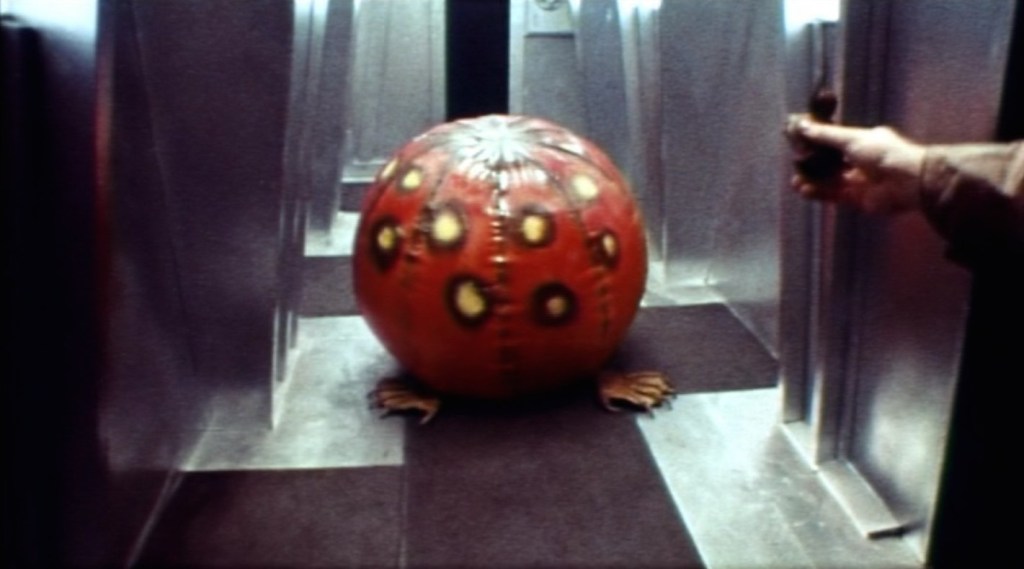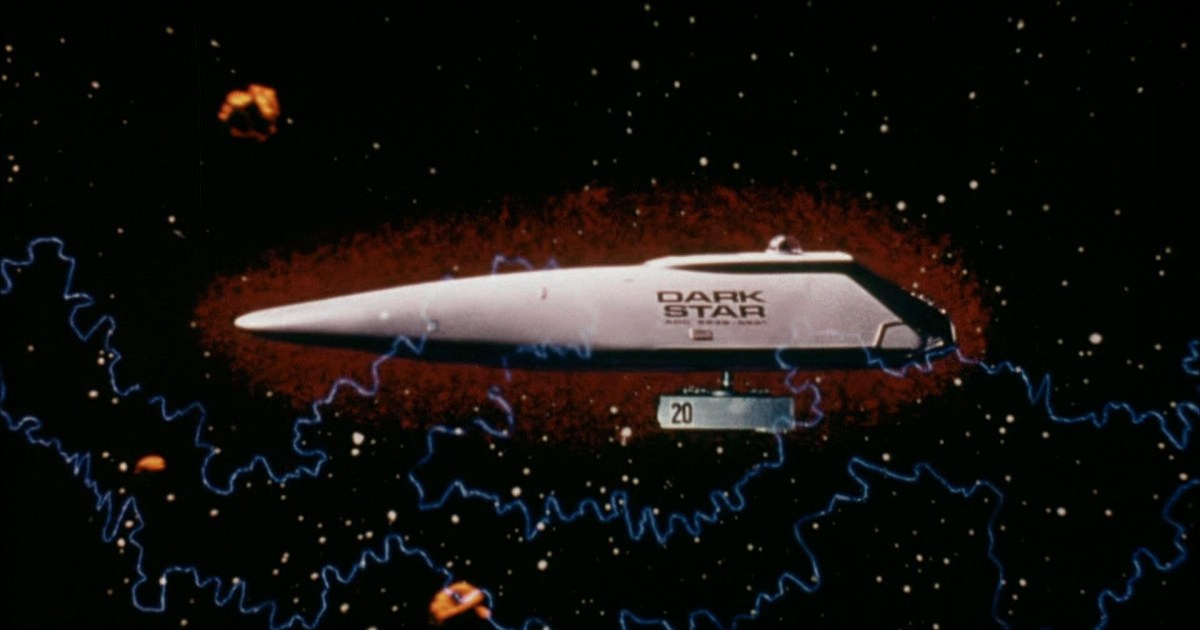This year marks the 50th anniversary of John Carpenter’s feature-length directorial debut. ComingSoon will cover each of the horror master’s films throughout 2024 as we chart his career from humble beginnings with a beach ball to the change in career direction that saw him bow out of movies for a while.
Back in 1974, a low-budget sci-fi comedy would be ground zero for two crucial names in sci-fi and horror going forward. John Carpenter and Dan O’Bannon would end the 1970s by redefining horror with Halloween and Alien, but first, the beachball.
Even as a John Carpenter aficionado, I find myself hard-pressed to say I enjoy Dark Star as a general movie experience, but it is an integral part of genre cinema history because of where its oddball experiment leads us.
Dark Star is the kind of lo-fi space satire that was refined somewhat with shows such as the BBC’s Red Dwarf. It follows a band of scientists who are scouring space to destroy unstable planets. Seems easy enough, but between a mischievous alien mascot that looks suspiciously like a dressed-up beach ball (spoiler: it is) and a sentient bombing device having an existential crisis, the mission takes a turn of the farcical.
It’s best to watch Dark Star as the student film it clearly is, and for Carpenter fans, it’s important to note that while he may be directing it, the movie is almost entirely O’Bannon’s baby.
That doesn’t mean it’s devoid of Carpenter’s influence, but there’s certainly more of the bones of what O’Bannon would go on to achieve in writing genre gems such as Alien, The Return of the Living Dead, Liforce, and Total Recall.

Carpenter and O’Bannon naturally put on many hats for Dark Star, something that would become an enduring habit for Carpenter’s career. Here, he writes, composes, directs, and even has a small role.
The movie itself is naturally rough around the edges, to put it mildly, but it has charm and ambition built into its budget—O’Bannon’s Sgt. Pinback is the standout performer from a comedic standpoint, and the lift scene is a superb piece of comedy, too.
Otherwise, it’s a bit of a difficult watch. Undeniably low in the Carpenter rankings, but given its place at the start of his career, it earns plenty of kudos for what it launched. Two years later, Carpenter would forge his own path and truly begin his journey as a director.

